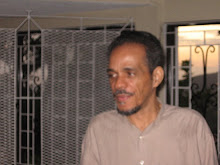There are at least two Jamaicas. The celebrated Jamaican Anthropologist, M.G. Smith, in his book, The Plural Society in the British West Indies, describes Jamaica and other Caribbean territories as classic cases of cultural and social pluralism:
“By cultural plurality I understand a condition in which two or more cultural traditions characterise the population of a given society. ... By virtue of their cultural and social constitution, plural societies are only units in a political sense. Each is a political unit simply because it has a single government.”
Our main contention is that this plurality has been reduced to two Jamaicas in the main. There is a popular culture of the Jamaican people that is distinct from the dominant, Western Creole culture, a popular, indigenous economy as distinct from the dominant client economy of some metropolitan power, and extremes of wealth and poverty that effectively result in two societies. The two Jamaicas are best described as Creole Jamaica and Black Jamaica, to describe the cultural duality. The economic duality consists of the dominant Clientilist Economy and the subordinate Popular Economy of the indigenous producers, workers, small traders and hustlers.
As if oblivious to the problem of social and cultural plurality, Out-of-Many-One-People Jamaica (whose motto does not represent the existing reality but a laudable aspiration) has sought solutions to our social and economic problems by pursuing models from Western Social Science. There are three main political ideological tendencies here. A mainstream Liberal Democratic tendency has been dominant in local politics throughout most of our history of self-determination, challenged by a radical Left tendency, linked to the (European-led) International Working-Class Movement, which has had brief periods of ascendancy. But there is also a Black Cultural Nationalist tendency which lacks formal political organization, but has provided the spark for all major transformative events in our history, from the Anti-Slavery struggle, through Freehold Economy and the peasant rebellion of 1865, the 1938 uprising of the displaced peasantry cum nascent working-class, to the Black Power threat to the status quo which ushered in the inconsistently pursued transformative programmes under Democratic Socialism in the 1970s.
The point of the thesis is that this Third Sector needs to be consolidated as a distinct social, cultural and economic sector to compete with the Clientilist Sector and its junior partner, the State Sector, by strengthening its institutions from the bottom up, to become the super-ordinate sector in Jamaica and the rest of the Afro-Caribbean cultural community. This is the only way to eliminate this social and cultural duality in Jamaica. And it has to be done by a movement of the people themselves carrying out a popular revolution to democratize their institutions to serve their interests rather than any other so-called “national interest” that preserves the status quo.
The need for the revitalization of this popular democratic movement for National Democratic Transformation is especially critical at this time when the People Sector is under threat from the forces of Neoliberal Globalisation, with the imminent return of the IMF as our economic managers and no stimulus package or plan for the real productive sector to get us out of the economic crisis. This crisis also threatens our cultural values and social institutions which have always helped us to survive in a hostile environment, with the lumpenisation of popular culture and triumph of the culture of donmanship, political garrisonisation and dog-heart crime and violence within our communities as the people lose hope.
It is our hope that this blog will serve as a forum to stimulate the revival of this centuries-old movement for National Democratic Transformation in the modern era of Globalisation. We welcome persons of all classes and races who subscribe to this goal.
Saturday, October 17, 2009
Subscribe to:
Post Comments (Atom)


I think you're assuming here that the popular culture of Jamaica and Creole culture are distinct and separate things that operate separately from each other. In fact, they are one and the same thing. Creolization is a process that produced a continuum rather than a set of parallel cultures and societies inhabiting the same country, and it has been so ever since the beginning of the complex encounter between Europe and Africa in Jamaica. Is Anansi mek it. Jack Mandora mi nuh choose none.
ReplyDeleteWithout wishing to get into an academic discourse with FSJL, Creole Jamaica here refers to that segment of the population that is more Westernised than the popular sector, where African retentions are greater. Nettleford describes this as “the battle between Europe and Africa ... for an African centrality in the indigenising process, if not uncontested supremacy”(Caribbean Cultural Identity:6). 'Creolisation' becomes 'indigenisation' when one ceases to be a cultural hybrid and creates something distinctly new, as with the folk forms of the rural peasants and the modern popular culture of the urban ghetto dweller.
ReplyDelete